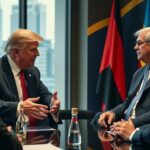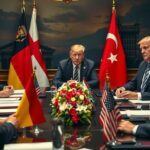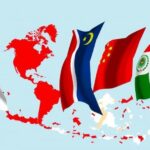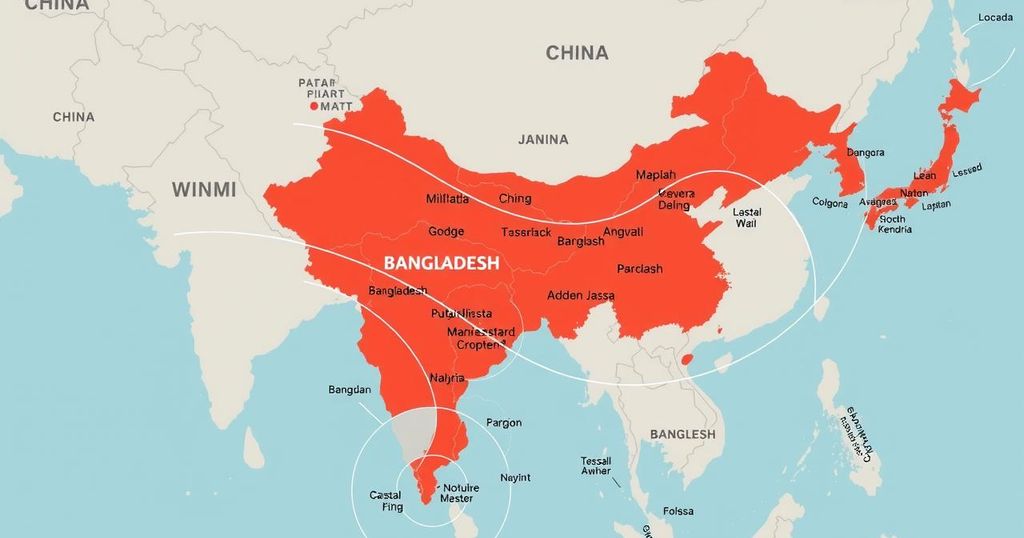Brazil Shifts Focus from BRICS Currency to Local Payment Systems
Brazil has decided against a common BRICS currency, opting to enhance trade using local currencies instead. The decision comes amid warnings from former President Donald Trump about U.S. dollar dominance. President Lula da Silva and former President Dilma Rousseff advocate for alternatives to reduce dependency on the dollar while exploring blockchain technology and preparing for the forthcoming COP30 climate conference.
Brazil has decided not to advance a common BRICS currency while leading the bloc this year. Instead, the nation shall prioritize enabling trade using local currencies, amid concerns expressed by former U.S. President Donald Trump regarding the potential challenge to the dominance of the U.S. dollar. The BRICS group comprises China, India, Brazil, Russia, and South Africa, with additional members such as Egypt, Ethiopia, Iran, the UAE, and Indonesia joining recently.
Notably, sources within the Brazilian government indicated that discussions regarding a shared currency have remained at a political level without transitioning into technical deliberations. President Lula da Silva’s administration aims to reform international payment methods among BRICS member nations, as he has long championed reducing reliance on the U.S. dollar. During the 2023 BRICS summit, he emphasized the importance of decreasing the vulnerabilities faced by member states due to dollar hegemony.
Furthermore, former Brazilian President Dilma Rousseff, who is now the head of the New Development Bank associated with BRICS, disclosed intentions for the bank to utilize national currencies for private sector investments within member states’ economies. In light of these developments, Trump has threatened severe tariffs on BRICS countries should they take steps towards such financial independence initiatives.
While Lula has softened his calls for a unified currency, he maintains that BRICS nations have a right to engage in trade practices that lessen their dependency on the U.S. dollar. The bloc is keen on investigating blockchain technology to enhance payment systems and reduce costs associated with transactions, aligning with international banking standards. Although member states are not looking to entirely discard their dollar reserves, they are eager to explore financial alternatives.
Brazil’s central bank and the Ministry of Finance have been discussing proposals for cross-border payment systems in preparation for the upcoming July BRICS summit in Rio de Janeiro. Currently, Brazil operates a Local Currency Payment System with Argentina, Uruguay, and Paraguay, although its application is limited. In the upcoming G20 meetings in South Africa, BRICS representatives will unveil Brazil’s summit agenda.
As a noteworthy economic coalition, BRICS accounts for approximately 37% of global GDP and has emerged as a significant counterbalance to the Western-led G7 since its establishment in 2009. In other remarks, President Lula criticized Trump’s environmental policies, asserting that they complicate climate funding commitments from affluent nations as Brazil gears up to host the COP30 climate conference from November 10-21 in Belem.
Lula has placed a spotlight on the Amazon region by selecting Belem for the conference aimed at enhancing financial support from developed countries for ecosystem preservation. Recent reports reveal that climate-related wildfires have devastated nearly 29.7 million hectares in Brazil, with a substantial portion occurring in the Amazon. The Brazilian government views the upcoming summit as pivotal for garnering international backing for forest conservation efforts.
In summary, Brazil has opted not to pursue a BRICS common currency during its presidency and will instead focus on trade facilitation in local currencies to reduce dependence on the U.S. dollar. The nation aims to reform international payment methods and explore blockchain technology while responding to external pressures, particularly from the U.S. By hosting the COP30 climate conference, Brazil also seeks to secure necessary support for environmental preservation efforts.
Original Source: www.intellinews.com








Post Comment